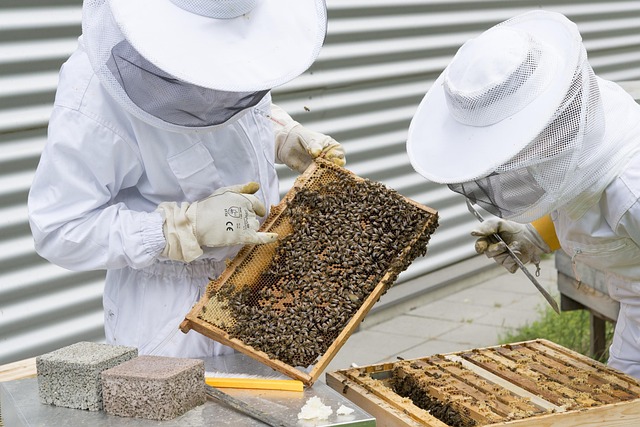The text emphasizes the growing trend of sustainable student living as students worldwide actively seek eco-friendly housing. It provides practical green college living tips and guidelines through the Student Eco Guide, encouraging students to make environmentally conscious choices. Key aspects include adopting energy-efficient practices, minimizing waste, supporting local food systems, and choosing sustainable transportation. By implementing these sustainable practices students, along with simple changes like using reusable bottles and public transit, they can reduce their environmental impact while saving money. The text also highlights the role of community engagement, where students can drive change by advocating for eco friendly housing, organizing educational events, and proposing green initiatives, thereby fostering a culture of sustainable student living that extends beyond campus boundaries.
Looking for a meaningful way to live while studying? Consider sustainable student living! This comprehensive guide explores eco-friendly housing options and green college living practices tailored for students. Discover the benefits of sustainable practices and learn practical student eco tips for reducing your environmental impact. From choosing green rentals to transportation alternatives and sustainable food choices, we empower you to become an active participant in creating a greener future.
- Understanding Eco-Friendly Living for Students: The Why and Benefits
- Choosing Green Student Housing: Tips for Finding Sustainable Rentals
- Implementing Daily Sustainable Practices on a Student Budget
- Reducing Your Carbon Footprint: Transportation Alternatives for College Students
- Green College Life: Sustainable Food Choices and Waste Reduction Strategies
- Empowering Change: Community Engagement for Eco-Conscious Students
Understanding Eco-Friendly Living for Students: The Why and Benefits

Many students today are becoming increasingly conscious of their environmental impact and actively seeking out ways to live more sustainably. Embracing eco-friendly living in student rentals is both a responsible choice and a chance to cultivate valuable habits that will benefit both the planet and your wallet. By adopting green practices, students can contribute to a significant global shift towards sustainability while also enjoying the perks of reduced energy bills and a healthier lifestyle.
This approach to student living goes beyond simply recycling and conserving water. It involves making thoughtful choices in daily routines, such as opting for energy-efficient appliances, reducing waste through minimalism, supporting local and organic food systems, and utilizing sustainable transportation options. The student eco guide offers numerous green college living tips to help newcomers navigate this journey, ensuring they can make a positive impact on their environment without sacrificing comfort or style in their rental homes.
Choosing Green Student Housing: Tips for Finding Sustainable Rentals

Choosing Green Student Housing: Tips for Finding Sustainable Rentals
When it comes to sustainable student living, selecting an eco-friendly housing option is a powerful step toward reducing your environmental footprint. As a student, you have the power to influence change – starting with where you live. Begin your search by looking for properties that actively implement sustainable practices. Think green college living and consider factors like energy-efficient appliances, natural lighting, and water conservation systems. Many modern student rentals are designed with these features, catering to the growing demand for eco-conscious housing.
Researching is key to finding the right fit. Explore online listings or consult your university’s sustainability office for recommendations. Look out for green certifications and check if the property has adopted sustainable practices students can embrace, such as recycling programs, compost initiatives, or even community gardens. With a bit of effort, you’ll discover numerous student eco guide resources and tips to help you make an informed decision, ensuring a positive impact on both your academic journey and the planet.
Implementing Daily Sustainable Practices on a Student Budget

Implementing daily sustainable practices doesn’t have to be expensive or time-consuming, especially for students on a budget. Simple changes like switching to reusable water bottles and coffee cups, opting for bulk purchases over individually packaged items, and reducing meat consumption can significantly lower your environmental impact while keeping a tight wallet. Many eco-friendly products are surprisingly affordable; look out for local bulk stores or online discounts for sustainable alternatives to everyday essentials.
Your rental space also plays a crucial role in green student living. Consider hanging curtains to insulate your room, reducing energy usage for heating and cooling. Opting for energy-efficient light bulbs and unplugging electronics when not in use can further cut down on electricity bills. Remember, every small step counts towards creating a more sustainable lifestyle, making your time as a student both eco-conscious and wallet-friendly.
Reducing Your Carbon Footprint: Transportation Alternatives for College Students

College students often find themselves at a crossroads when it comes to their environmental impact. With limited resources and flexible schedules, adopting sustainable practices can seem daunting. However, transportation choices play a significant role in reducing your carbon footprint while embracing green college living. Opting for eco-friendly alternatives like biking, walking, or using public transit is an excellent way to start. These options not only cut down on emissions but also encourage healthier habits and save money on fuel costs.
For students living in rental accommodations, consider joining carpool programs or using ride-sharing apps to further minimize your environmental impact. Many universities offer student discounts for public transport, making it more accessible. By incorporating these sustainable practices into daily routines, students can actively contribute to a greener lifestyle and become part of the growing movement towards eco-conscious living in student rentals, ensuring a brighter future for our planet.
Green College Life: Sustainable Food Choices and Waste Reduction Strategies

Student life offers a unique opportunity to embrace sustainable student living and make a positive impact on the environment. One of the key aspects of green college living is adopting eco-friendly food choices and minimizing waste. For many, this journey begins with understanding the power of local and organic produce. By supporting nearby farmers’ markets or joining community-supported agriculture (CSA) programs, students can reduce their carbon footprint associated with transportation and contribute to a more vibrant eco friendly housing ecosystem.
Additionally, implementing simple waste reduction strategies goes a long way in achieving sustainable practices students. Encouraging the use of reusable water bottles and coffee cups can significantly cut down on single-use plastic waste. Composting food scraps and recycling materials are other practical tips for a student eco guide. These habits not only benefit the environment but also foster a sense of responsibility and community among residents, setting a positive example for green student tips that can extend far beyond campus walls.
Empowering Change: Community Engagement for Eco-Conscious Students

Eco-conscious students have an incredible opportunity to drive change within their communities, especially when it comes to sustainable student living. By actively engaging with peers and landlords, they can foster a culture of green college living that extends far beyond their individual efforts. One powerful way to initiate this is through community organizing; students can band together to advocate for eco-friendly housing options and push for the adoption of sustainable practices in their rental properties.
This collective action can take many forms, from hosting educational workshops on green student tips to proposing and implementing recycling programs within their buildings. By treating their living spaces as a canvas for positive change, students can inspire not only their immediate surroundings but also set a precedent for future generations, ensuring that sustainable practices become an integral part of the student experience.






